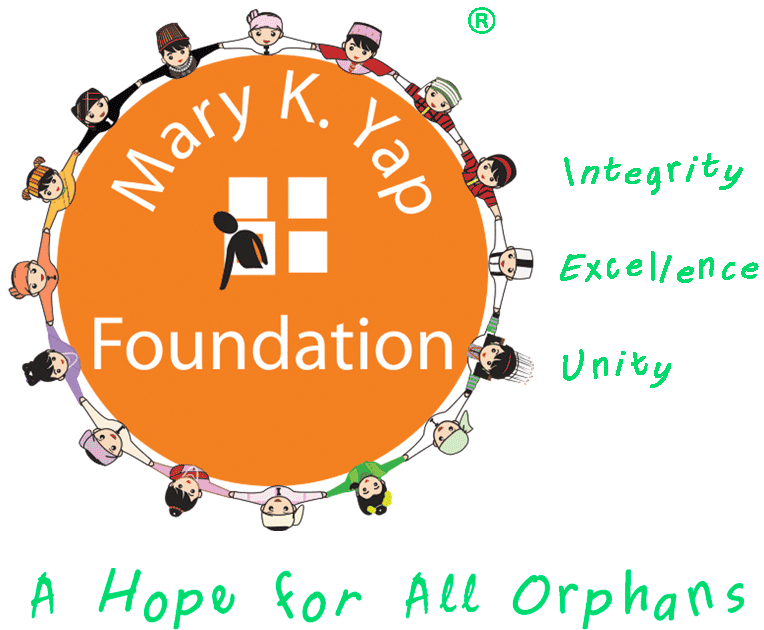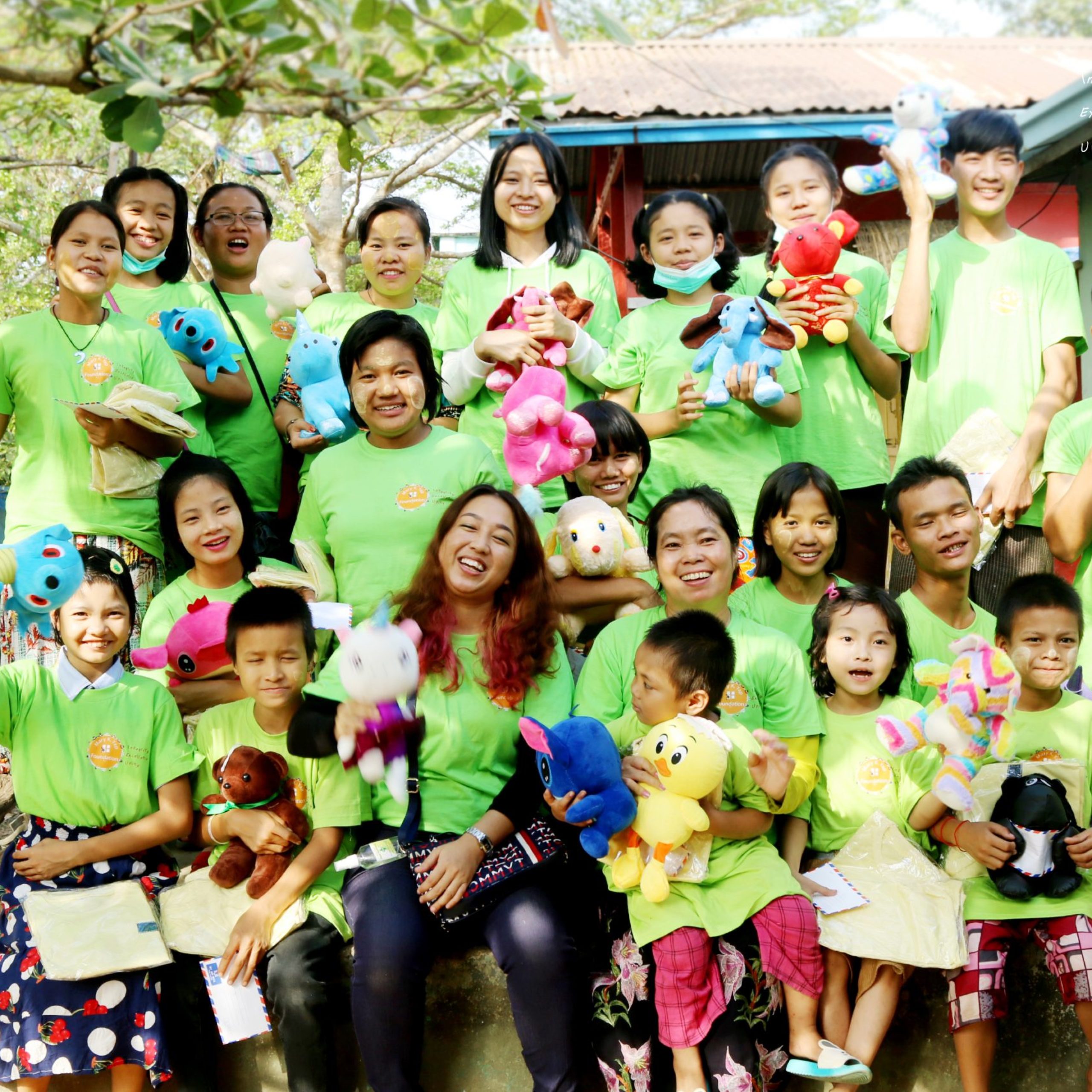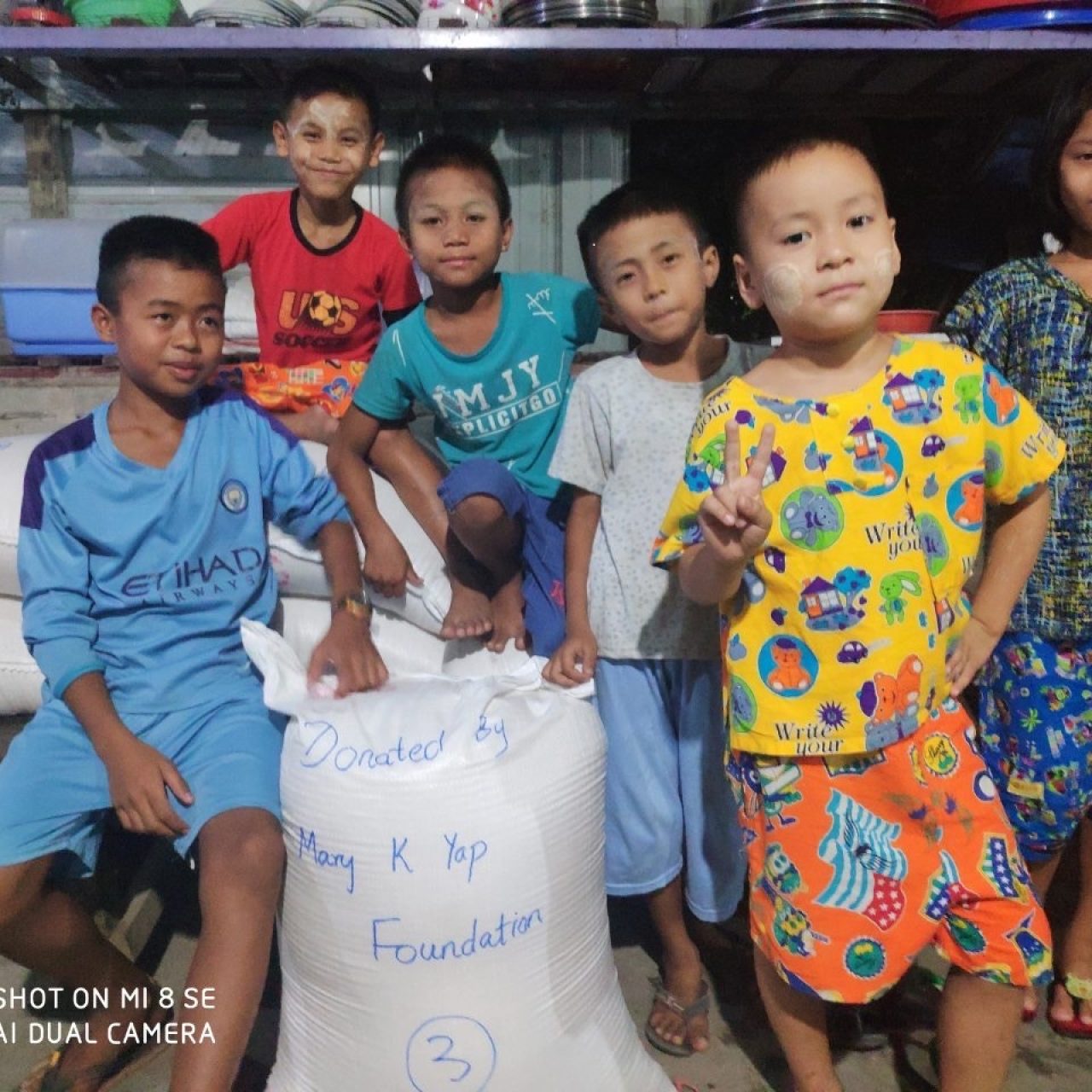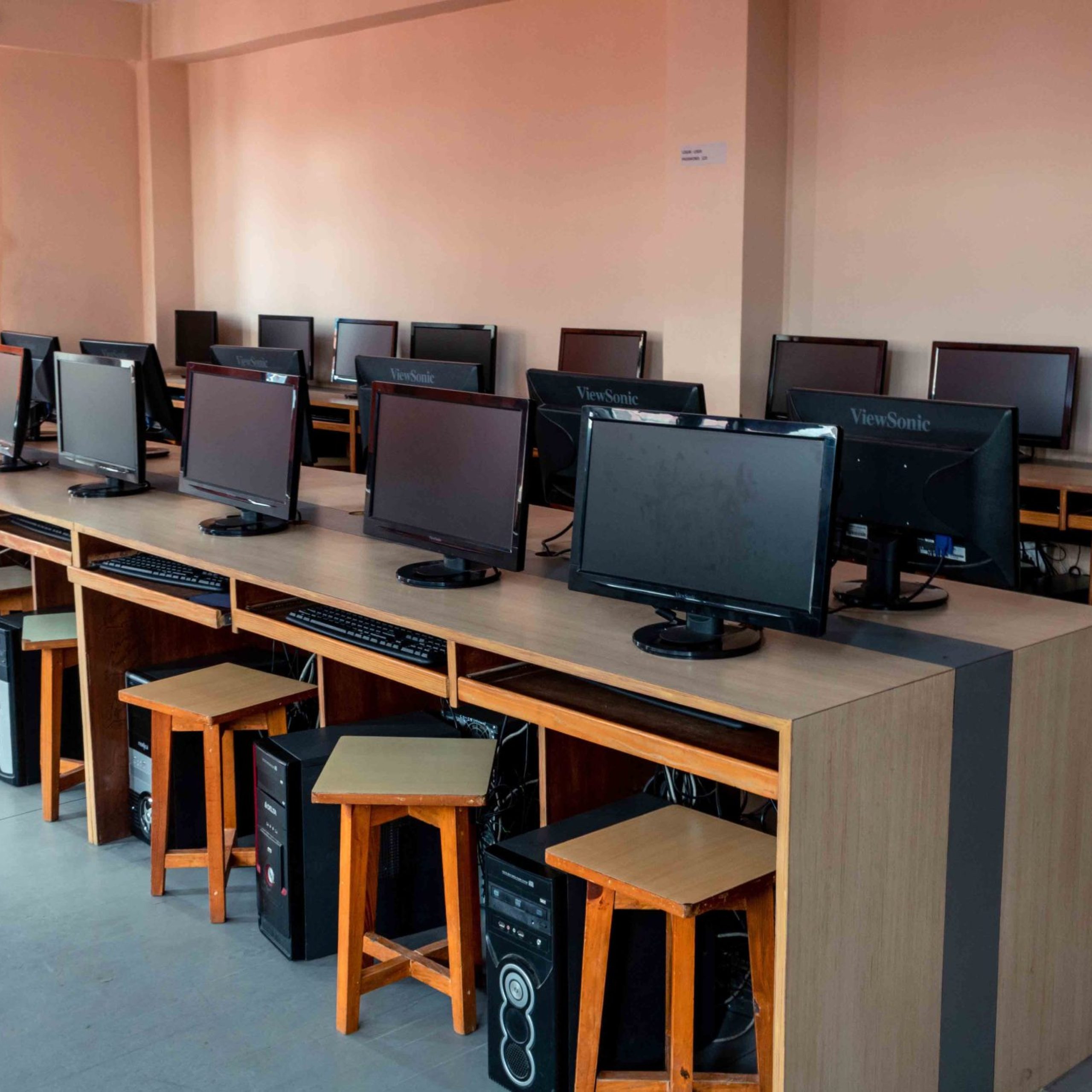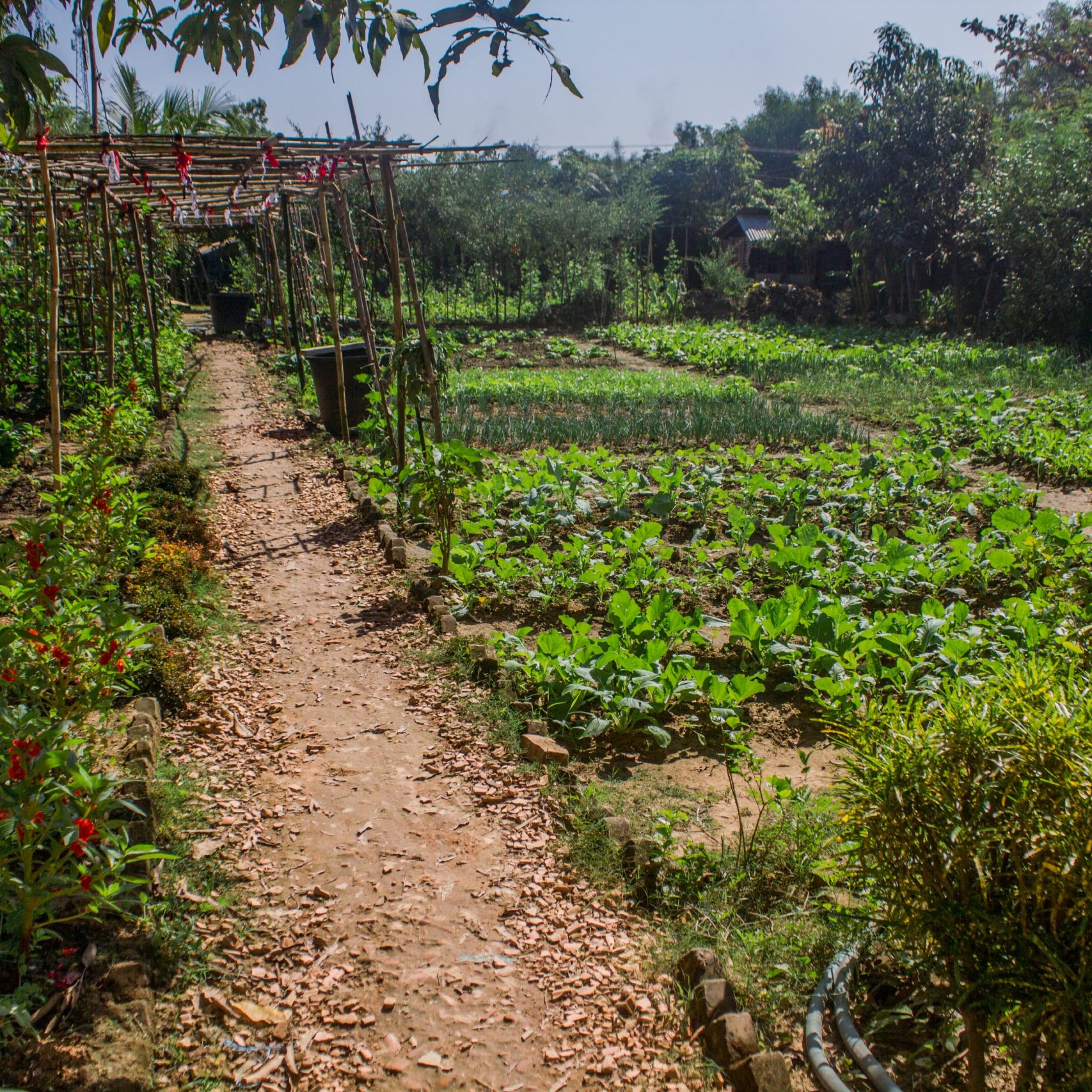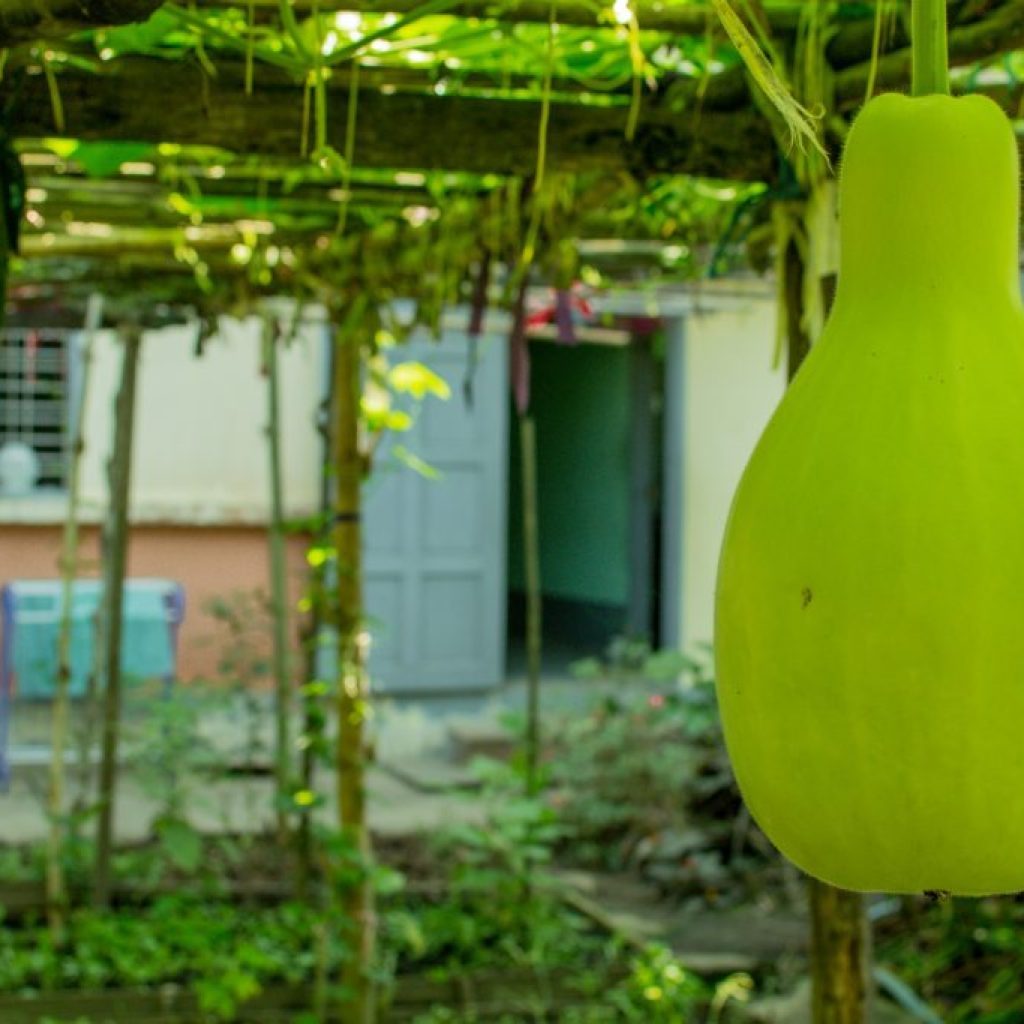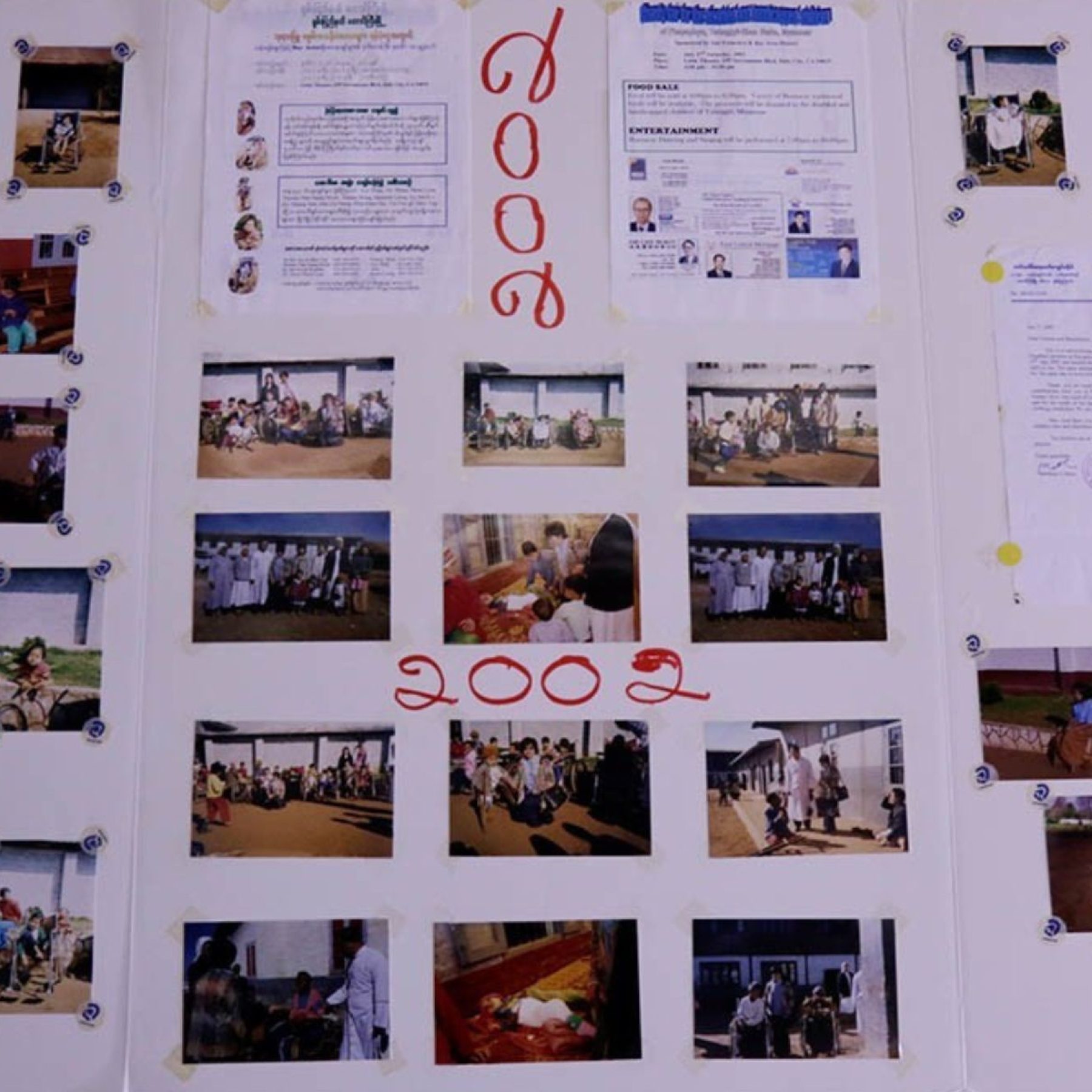
Goal #6: Clean Water And Sanitation
Impacting Lives Through Collective Fulfillment!
“Access to clean water and sanitation is not just a basic need; it’s a fundamental right that transforms the lives of orphanages, ensuring a safe and healthy environment for the children.”
Almaz Negash
Board Member, Mary K. Yap FoundationUN’s Goal 6, Clean Water and Sanitation, is crucial to ensure universal access to safe and affordable drinking water and adequate sanitation. This goal recognizes the fundamental importance of clean water and sanitation in promoting health, well-being, and sustainable development. For orphanages and similar institutions, achieving Goal 6 is paramount to safeguarding the health and dignity of children and caregivers alike and promoting a conducive environment for learning and growth.
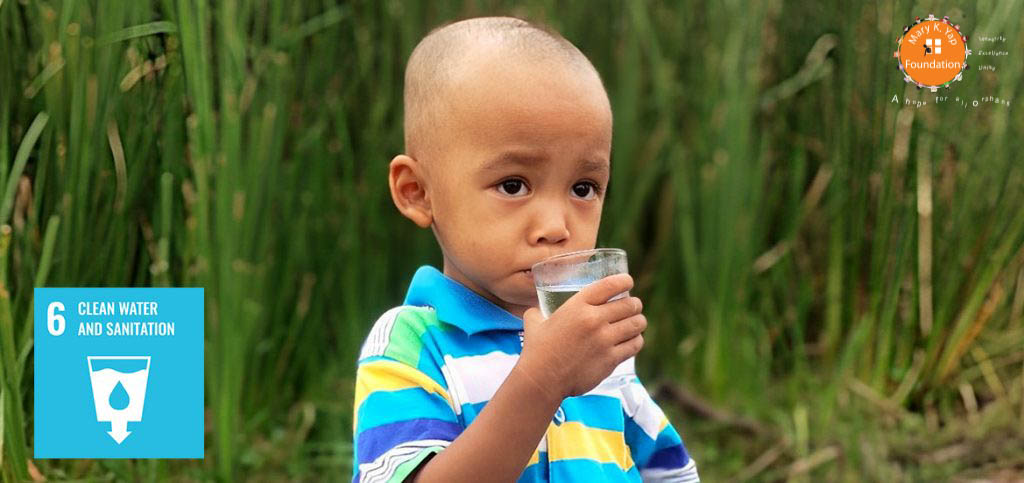
Access to clean water is essential for maintaining proper hygiene practices, preventing waterborne diseases, and supporting basic daily activities such as cooking, cleaning, and sanitation. Orphanages that lack access to clean water face significant challenges in providing residents with a safe and healthy environment. Implementing programs to improve water quality, ensure reliable access to clean water sources, and promote water conservation measures can greatly benefit orphanages and contribute to achieving Goal 6 targets.
Sanitation facilities are equally vital in orphanage settings to ensure proper waste management, hygiene, and dignity for residents. Adequate sanitation facilities, including toilets, handwashing stations, and waste disposal systems, are essential to a healthy living environment. By investing in improving and maintaining sanitation infrastructure, orphanages can create hygienic and dignified spaces that support the well-being and development of children and staff.
Moreover, promoting water conservation practices within orphanages contributes to achieving Goal 6 and aligns with broader sustainability objectives. Implementing water-saving technologies, educating residents about water conservation habits, and utilizing recycled or rainwater for non-potable uses can reduce water waste and contribute to environmental sustainability. These efforts benefit the orphanage directly and serve as examples of responsible water management practices for the surrounding community.
Below are five impactful reasons why clean water and sanitation facilities are essential for improving children’s living conditions.
- Health and Well-being: Clean water and sanitation facilities are fundamental to maintaining good health and preventing the spread of waterborne diseases. Access to clean water for drinking, cooking, and personal hygiene, along with proper sanitation facilities like toilets and handwashing stations, significantly reduces the risk of illnesses among orphanage residents and staff, promoting overall well-being.
- Dignity and Hygiene: Adequate sanitation facilities ensure that orphanage residents maintain their dignity and hygiene standards. Access to clean and private toilets, handwashing facilities with soap, and proper waste management systems create a respectful and comfortable living environment, boosting residents’ self-esteem and well-being.
- Education and Learning: Clean water and sanitation directly impact orphanage educational outcomes. Children with access to clean water and sanitation facilities are more likely to attend school regularly, concentrate on their studies, and participate in extracurricular activities. Improved health from access to clean water and sanitation also reduces absenteeism due to illness, enabling continuous learning and academic progress.
- Disease Prevention: Clean water and sanitation are crucial in preventing the spread of waterborne diseases such as diarrhea, cholera, and typhoid. By providing safe drinking water and promoting proper sanitation practices, orphanages can significantly reduce the risk of infectious diseases, protecting the health of residents and staff and minimizing healthcare costs and burdens.
- Sustainable Development: Investing in clean water and sanitation facilities aligns with broader sustainability goals and contributes to achieving the United Nations Sustainable Development Goals (SDGs). By ensuring access to these essential services, orphanages build resilient communities, promote environmental sustainability through responsible water management practices, and foster a healthier and more equitable society for future generations.
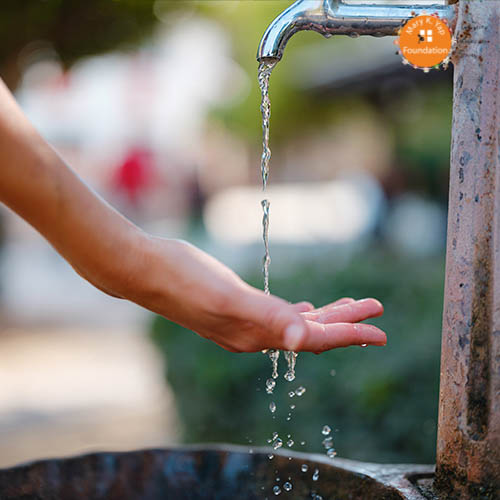
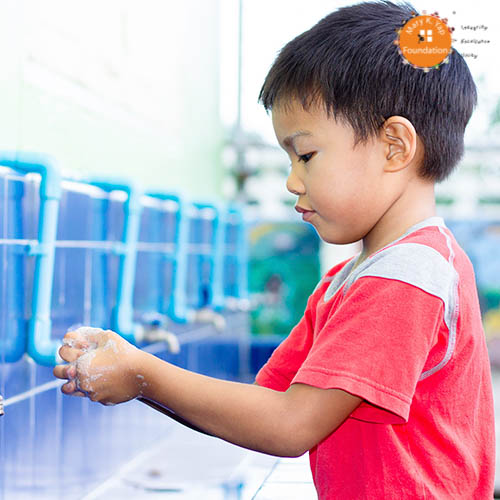
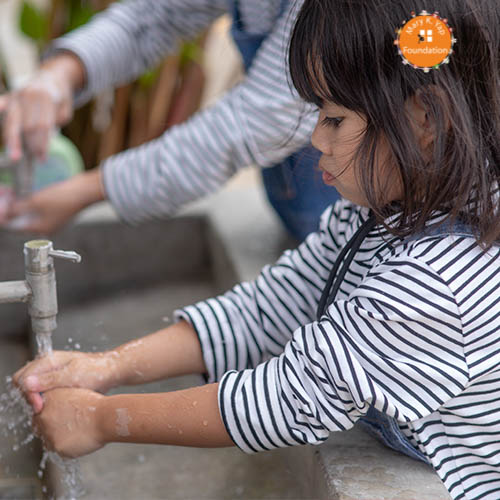
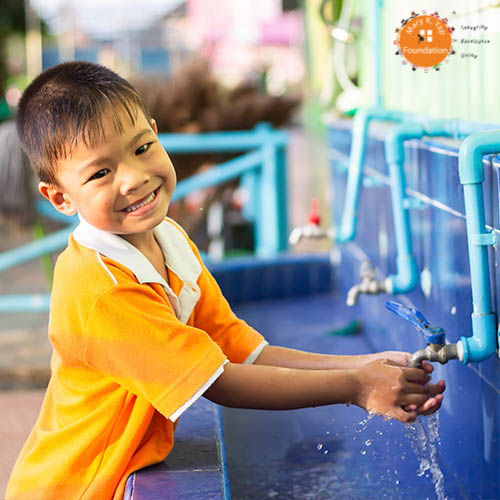
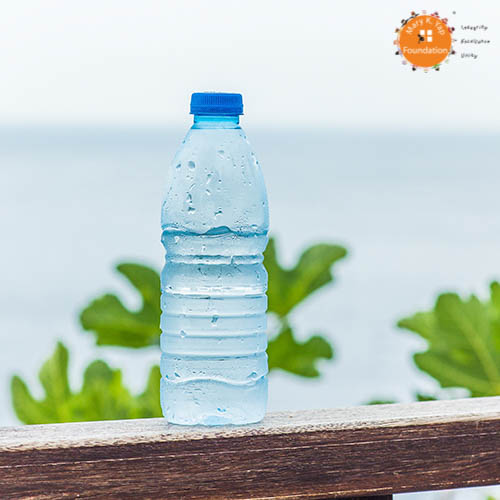
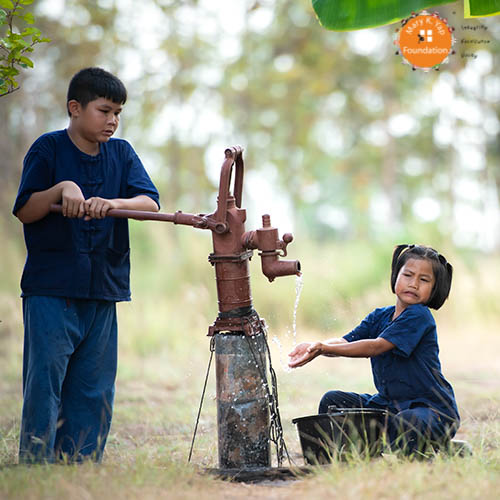
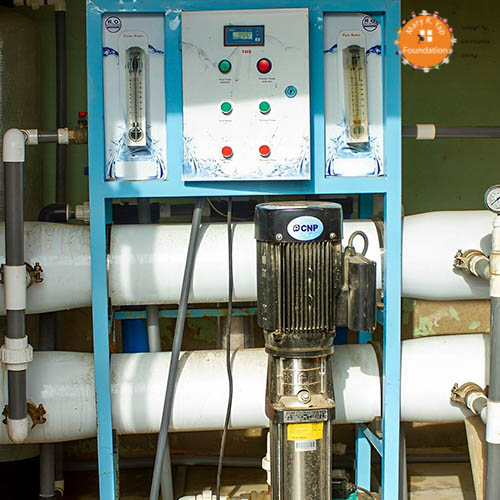
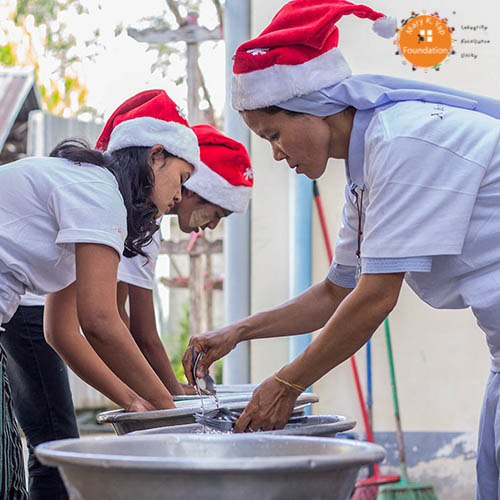
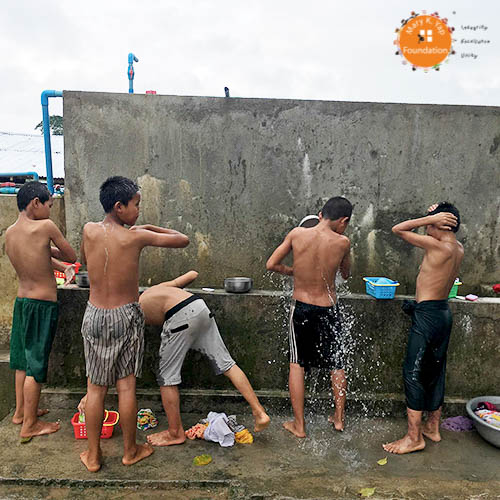
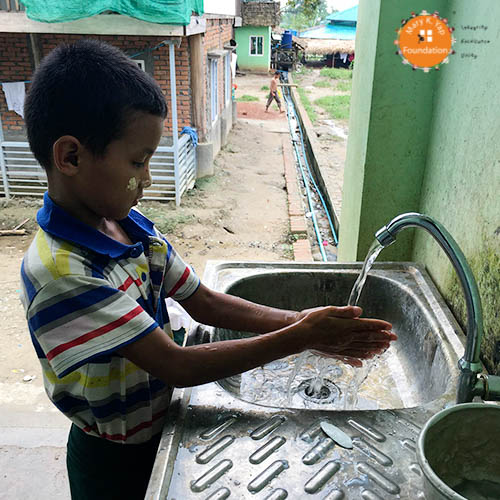
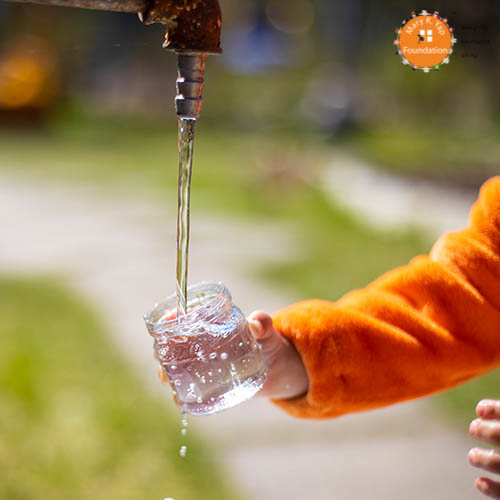
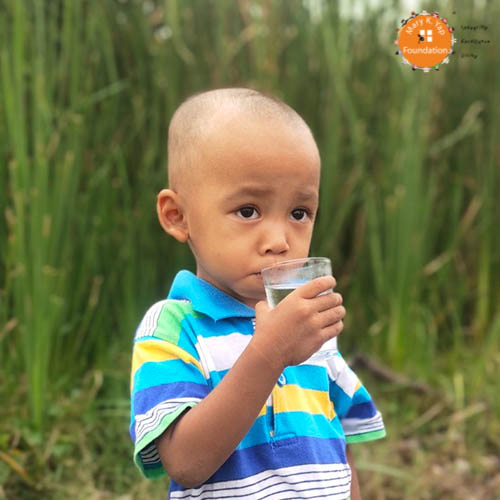
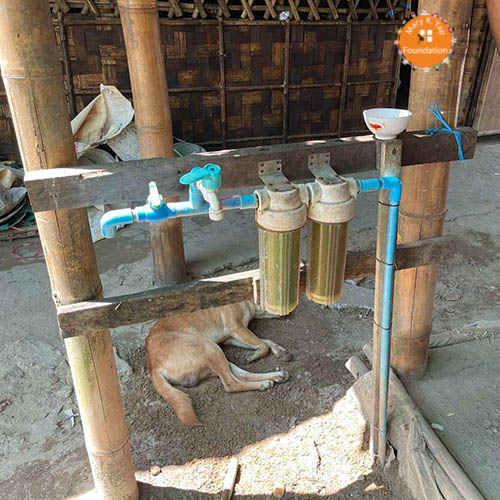
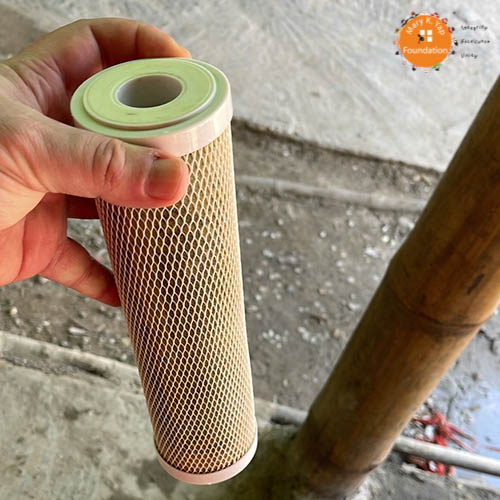
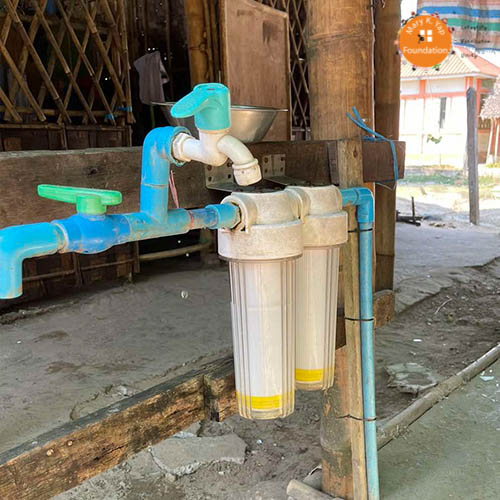
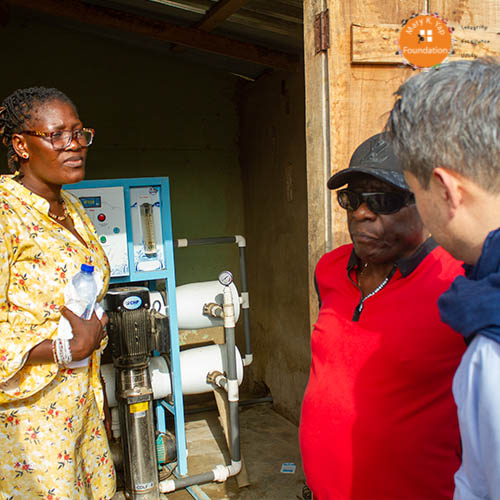
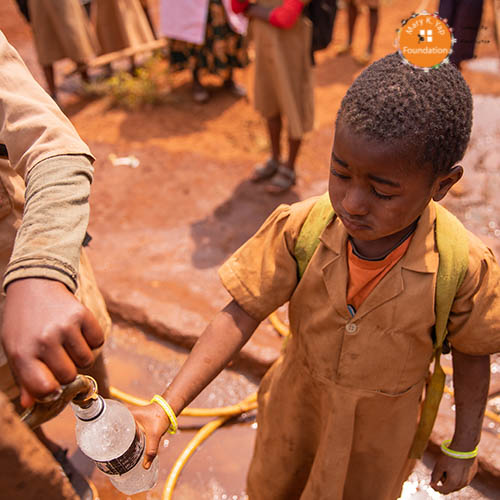


Partnerships with government agencies, NGOs, and water and sanitation experts are instrumental in supporting orphanages in achieving Goal 6 targets. These partnerships can provide technical assistance, funding for infrastructure improvements, capacity building for staff and residents on hygiene and sanitation practices, and monitoring and evaluation mechanisms to ensure sustained progress toward clean water and sanitation goals.
